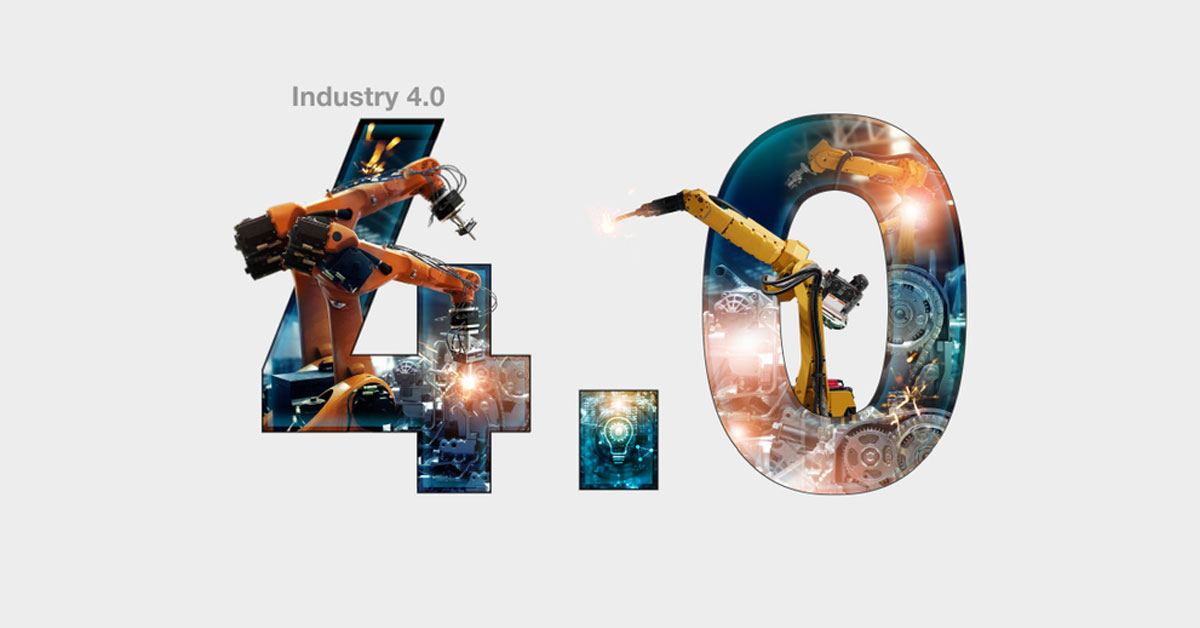Effects of Digitization on Manufacturing Business
Every industry has undergone a digital transformation in the past ten years, and manufacturing is no different. Our manufacturing consultant says how, over the past ten years, the use of digital technology has aided industrial companies in accelerating projects.
Here are the top 5 ways that digitization will change the manufacturing sector:
1. Online availability
The global epidemic has badly hurt other businesses, including manufacturing. The adaptability of the communication channels was hampered.
According to statista.com, in 2020, 20% of logistics sector professionals claimed that the global pandemic had impacted their supply networks. Additionally, roughly 11% of respondents said that the COVID-19 pandemic caused the cancellation of their orders.
As a result, all industrial organizations tend to place the highest premium on digital connectivity. Businesses embraced digital networking to prevent future production process interruptions.
Surprisingly, the Internet of things (IoT) is expanding as a result. By 2025, it is anticipated that over 75 billion manufacturing gadgets will be linked and exchanging data.
The list of connected devices that businesses will use to maintain connectivity is as follows:
- Operations
- Inventory
- Employees
- Equipment
- Customers
Effectively exploiting data connectivity is improved through digital transformation. The manufacturing processes have been optimized, from B2B to warehousing systems.
2. Smart Technologies

In 2021, the manufacturing sector will have pioneered the way for smart technology. The epidemic caused the majority of manufacturing sectors to lean on automation to ensure that processes ran smoothly. Around the world, 2.7 million industrial robots are in use in industries, according to the International Federation of Robotics.
The use of intelligent technology, such as AI, 3D printing, robotics, and the newest digital tools, would produce positive results. It includes lessening human mistakes or harm, boosting output, enhancing quality, and more.
Robotics and automation systems, including collaborative robots, autonomous mobile robots, automated guided vehicles, and AGVs (cobots). In manufacturing-related industries including logistics, warehouses, packaging, and others, their demand is projected to increase. The workflow would be efficient with the appropriate digital tools. The productivity of the company process would increase as a result.
Robots would also be able to do difficult tasks with flexibility. Relieving employees or laborers from difficult jobs and boring schedules would be beneficial.
In the end, clever and cutting-edge technology plans for all-encompassing access to optimization. It lays forth strategies for enhancing supply chains, business performance, and other aspects of ERP.
3. Management of Operations
Operations management practices in manufacturing are getting more nimble. After the 2020 pandemic catastrophe, industries’ top objective is to get back to business as usual.
Additionally, manufacturers are implementing cutting-edge process methodologies to save operational costs. It comprises cutting waste, optimizing processes, streamlining work, and maintaining operations.
Operation management has undergone a revolution as a result of the digital transformation in manufacturing. For instance, it facilitates real-time data monitoring, maximizes effectiveness, enhances output, enhances quality & compliance, and so forth.
4. Sustainable and green manufacturing
According to statistics, the manufacturing industries are responsible for about 54% of the world’s energy consumption and 20% of its emissions.
Therefore, adopting green and sustainable practices is crucial for the industrial and food processing businesses. Additionally, manufacturing sectors like the construction materials sector are searching for more sustainable methods.
It will provide some advantages. It entails keeping track of waste minimization strategies, transitioning to renewable energy, reusing materials & resources, and other things.
Finally, manufacturing firms have the time and space to test out novel ideas. Create space as well to strive toward an environmentally friendly and sustainable manufacturing method.
5. Communication
Millions of workers were forced to continue working remotely due to the pandemic problem. Additionally, effective communication should be taken into account. As a result, digital tools were used by almost 60% of industries for centralizing communication.
The manufacturing industry benefited more from digitization to maintain and improve productivity. The workflow is maintained, and productivity was unaffected. Additionally, it encourages improved data communication between staff members and departments. Digitalization also offers accessibility regardless of location or time.
The restrictions of interconnection have been reduced via digitization. The automated communication paradigm has also improved responsiveness, accuracy, and efficiency.
The Reasons to go Digital
It’s critical to comprehend the benefits of digital manufacturing because digitization continues to create ground-breaking company chances.
- Increased speed and accuracy
- Everyone has access to the same real-time data thanks to transparency.
- Traceability – the ability to simply track each step of the process
- There is no manual document work, so there is no time waste.
- OEE increased by 20–50% because you may take all the required steps to enhance your overall performance if you know precisely where and why you are squandering resources.
- Planning that is optimized produces only what is required when it is required. Making the ideal manufacturing strategy is simple. Stop the excess output.
- Reduce lead times and deliver on schedule.
- Reduce WIP and inventory; don’t invest all of your money in it. Examine your present output to find your weak points. Keep an eye on your supply and the general movement of materials.
- Real-time performance tracking will cut down on reporting time.
- Make your workforce mobile so that operators and shop floor workers can perform more effectively with the necessary information at their fingertips.
The overall performance of the business is positively impacted by the digitization of the manufacturing process. However, the consequences are felt throughout the entire factory. Your team will have a better working environment thanks to digital transformation, which also speeds up and simplifies routine tasks.
Digital technologies are now being used by businesses and departments as a result of digital transformation. It has aided in the development of new business procedures, brought value to routine operations, promoted innovation and provided better client engagement opportunities.
The following are the main areas of manufacturing’s digital transformation:
- Lowering expenses and enhancing operational effectiveness
- Maintaining high standards for completed goods
- Adjusting more quickly to shifting market demands and customer expectations
Digital Transformation’s Impact on Manufacturing
The key forces behind the manufacturing sector’s digital transformation are shifting consumer expectations and fierce competition. By utilizing digital technology, manufacturers may increase speed and efficiency, cut costs, and provide superior consumer experiences.
Previously restricted to cloud transformation alone, digital transformation has expanded to become a significant determinant of business outcomes. Our manufacturing consultant asserts that it is only logical for OEMs and district manufacturers to prioritize projects that will provide a quick return on investment.
The epidemic has made manufacturers more aware of their company’s operational flaws and limitations. For instance, they now understand how crucial it is to have access to real-time supply chain data so they can react more quickly to supply issues and demand increases.
Modern technology has made it possible for the industrial sector to efficiently use digital technology to improve operational procedures and increase supply chain efficiency.
Supply chain systems are now connected thanks to digital transformation, which can assist manufacturers in gathering equipment data by utilizing AI and predictive analytics. Additionally, it has made it possible for them to apply the distributed value chain’s distributed value chain and manufacturing operations’ real-time data.
In the industrial industry, digitization can automate boring manual activities and save money, time, and resources.
The Manufacturing and Distribution Sector’s Response to Digital Transformation
Businesses have benefited in numerous ways from the digital transformation of production and distribution throughout the years. Other key effects of digitization, in addition to cheap operating costs, increased productivity, competitive advantage, flexibility, and product quality include:
1. Improved Insights
The employees can now accurately understand data and track important operational indicators thanks to digital manufacturing systems. The employees can effectively establish operational strategies, sell more, and increase income with the use of these data-driven insights. Digital solutions can give predictability in terms of performance and downtime calculation, which are the cornerstones of manufacturing processes.
2. Creativity
With digitization, firms can use cutting-edge technologies. They can explore uncharted territory and learn cutting-edge methods to deliver unmatched capabilities including improved employee collaboration, fewer risks and mistakes, and increased quality and accuracy.
3. Being economical
Techniques for digital transformation have given certain manufacturers better and more trustworthy insights into challenging supply chain problems. They will be able to handle supply and demand uncertainty and make well-informed decisions. The adoption of digital technology will allow producers to save vital time and energy resources along the value chain and reduce costs associated with inventory, machinery, and stock.
4. Shorter time to market
The majority of tasks are optimized through digitization, which reduces the time it takes for manufactured goods and services to reach the market. By integrating digital techniques across departments and the production workforce, workers may better manage risks. The organization will inevitably work closely together as daily duties are automated, facilitating successful product marketing.
5. How to get to Industry 4.0

Businesses can prepare their operations for Industry 4.0 by future-proofing them as digitization picks up speed in the manufacturing sector. They can keep up with the most recent innovations and fashions to outperform their rivals. All manufacturers now have an equal chance to speed up their progress toward greater productivity and profits thanks to digitization.
The industrial industry’s use of digital technologies has greatly benefited from the Industry 4.0 revolution. Businesses have become more long-term stable and sustainable, regardless of their size. Digitization has been used by manufacturers to maintain consistency and avoid being out-of-date.
According to our expert manufacturing consultant, it is impossible to disregard how changes will affect workers during any stage of evolution up until Industry 4.0. The real-time data required for precise segmentation and analytics are accessible to key staff.
Digitization has the power to completely alter the range of manufacturing operations, from production to delivery. Manufacturers who continue to use conventional methods risk falling behind the competition. They might also struggle to cut costs, maintain high revenue streams, and provide improved services.
Manufacturing digital transformation trends to watch in 2022
- IIoT and artificial intelligence (AI) (Industrial Internet of Things)
- Change in the Cloud
- 3D printing
- Robotics
- Smart Manufacturing and 5G
- Cloud-based B2B and B2C commerce
The Final Word
A survey states that the value of digital transformation in the manufacturing business was estimated to be USD 263.9 billion by 2020 and to reach USD 767.8 billion by 2026. Industry 4.0’s advent in the sector has inspired factories to implement digital technology to innovate, modernize, enhance, and automate the majority of industrial processes. In the manufacturing sector, digital transformation has aided organizations in addressing global industrial concerns, modernizing supply chains, fostering data-driven planning, and allowing businesses to stay ahead in their specialized markets.



